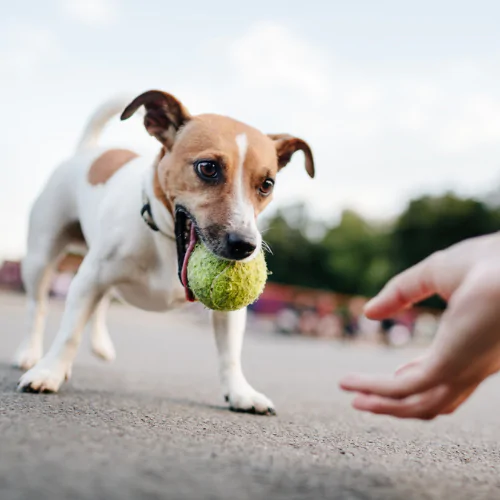
How to prevent and stop dog resource guarding
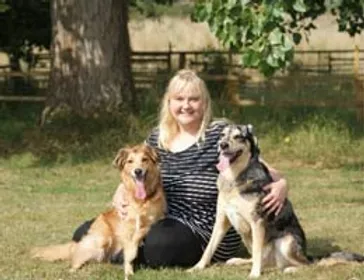
Philippa Short
17 August 2022
Resource guarding is a common behavioural problem that often begins in puppyhood and can escalate quickly.
Expert dog behaviourist Philippa Short is here to teach you the warning signs of resource guarding. Learn how to prevent resource guarding in puppies and know what to do if you think your pooch is starting to guard.
- What is resource guarding?
- Why do dogs resource guard?
> Why you shouldn’t (generally) grab things out of your dog’s mouth - What are the early body signals of dog resource guarding?
> What are the escalated body signals of dog resource guarding? - How to prevent resource guarding in puppies
- How to stop resource guarding in dogs
> Other ways to support a resource guarding dog
> Can I claim behavioural support for resource guarding through pet insurance?
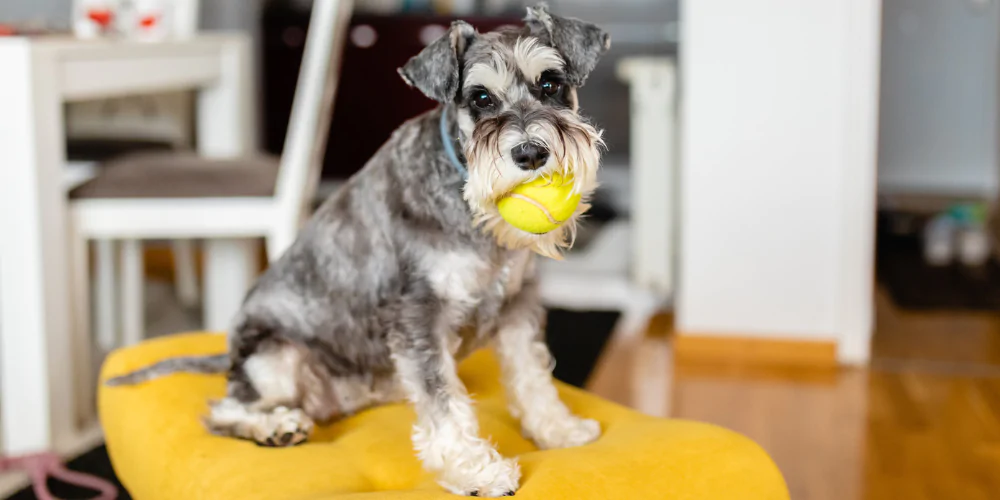
What is dog resource guarding?
Resource guarding is where your dog has anything of value they wish to hold on to.
It’s normal and natural behaviour that has a good basis in wild dogs. For example, they may need to learn how to hold onto their food from other prey animals or guard their pups.
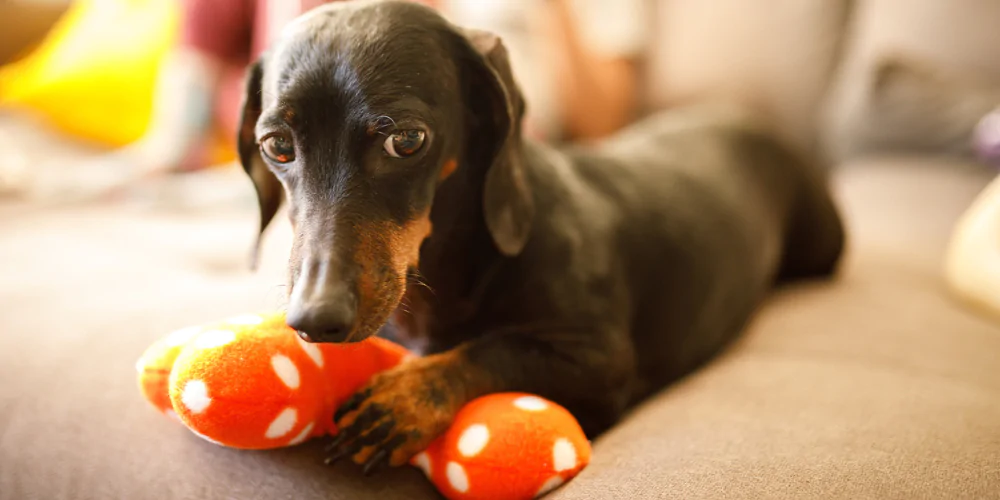
Why do dogs resource guard?
Dogs resource guard as a reaction to us constantly grabbing stuff out of their mouths. Doing this can make them feel like they need to be protective over their things. The behaviour then escalates and leads to extreme resourcing guarding.
> Why you shouldn’t (generally) grab things out of your dog’s mouth
It all begins when they’re puppies and exploring the world. At this stage, everything (known and unknown) goes into their mouth – and that’s completely normal.
But constantly grabbing at their mouth and pulling things away will make them feel:
- Insecure about the objects they’re exploring
- Worried about approaching you with those objects
- The need to escalate their body signals up to resource guarding behaviour
Always try to look at things from your dog’s point of view:
- Your dog doesn’t know they’ve got something expensive in their mouth. They’ve just picked up something that smells of you.
- If you get cross and try to snatch it from them, they’ll think they can’t come to you. They start to take items somewhere ‘safe’ like their bed.
- If you continue trying to constantly snatch things away, your dog believes they can’t have anything around you.
- This eventually leads your dog to think that being around humans is a bad thing and they start getting extremely protective.
Having been bred to retrieve things, you may notice that Spaniels and Golden Retrievers have an especially strong need to pick things up.
Of course, it’s different if your puppy or dog has something toxic or harmful in their mouth. In that case, you’ll absolutely need to take the dangerous item away as quickly as possible.
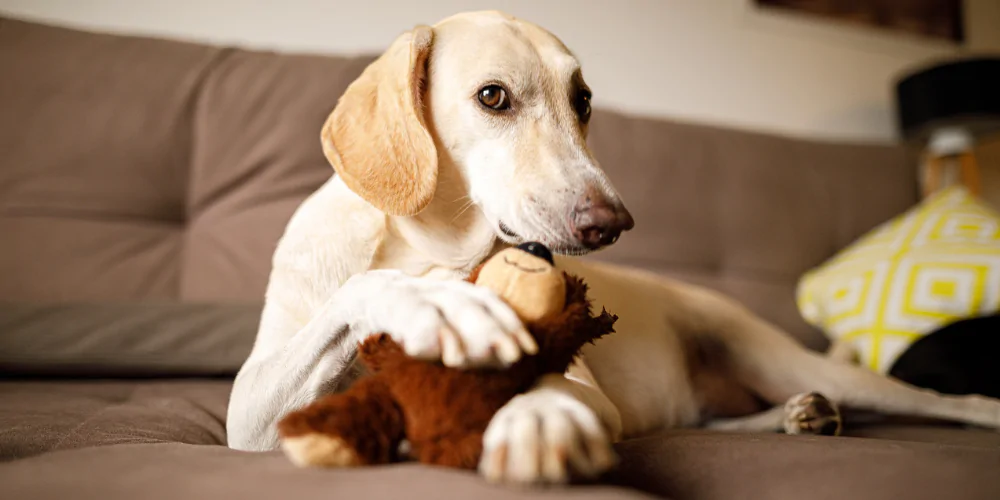
What are the early body signals of dog resource guarding?
Dogs don’t want to be defensive over their things. If your pup is uncomfortable with you approaching them, they’ll give some early warning signs to let you know. These include:
- Low lip licks
- Blinking
- A furrowed or wrinkled brow
- Whale eye (where the eye goes wide and you see the whites)
- Head turned away
- Ears back (though this might be harder to see with longer-haired breeds)
- Yawning
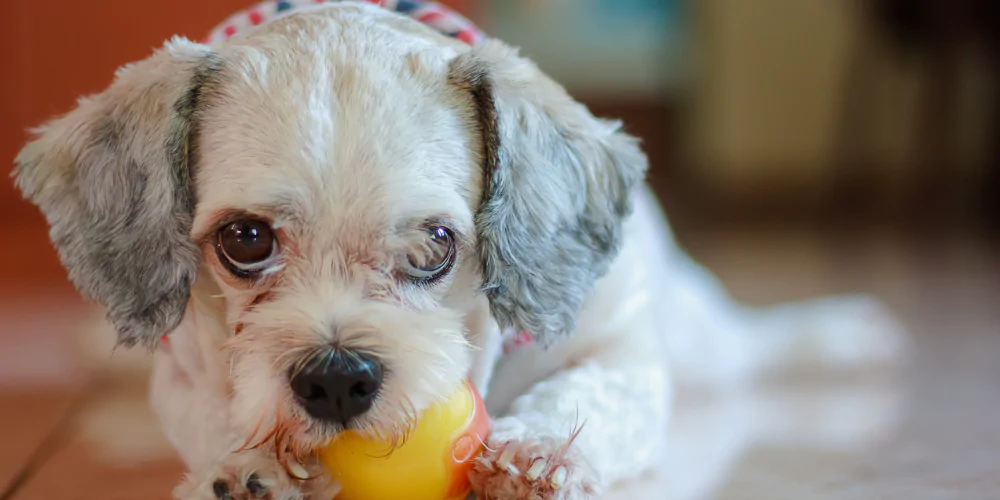
> What are the escalated body signals of dog resource guarding?
Ignore the early body signals or continue to challenge your pup; they’ll have no choice but to escalate their response to you. How long it takes for your dog to escalate their behaviour depends on how things are handled.
This is how things escalate:
- First, they’ll turn to face you, giving you a hard stare as their head lowers down.
- Next, their lip will lift a little and they’ll give a low growl.
- This will then increase to a bigger lip lift and a deeper growl.
- At the highest point of escalation, your pup will move up to a full tooth and then open mouth snarl. There’s also a risk they could lunge at you with the intent to bite.
Once your dog has moved past those early warning signals into exaggerated ones, you need to bring in a canine professional. It’s also important not to challenge a dog who’s actively guarding something. Unless they have hold of something dangerous, leave them be and speak to an expert.
Never let the situation escalate any further than your dog readily growling at you. It can be very difficult to de-escalate a dog who’s been pushed to the point of attempted biting.
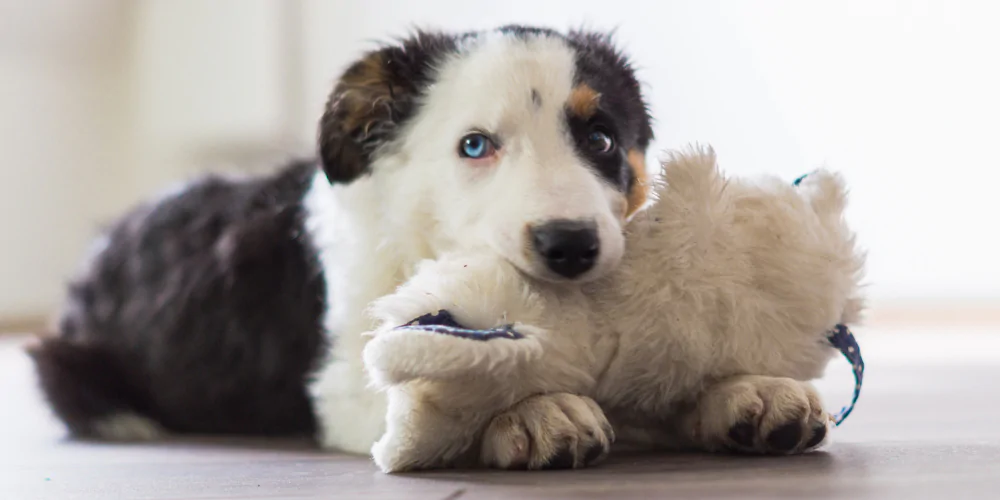
How to prevent resource guarding in puppies
As with many things, prevention is better than cure. Building a healthy and positive relationship with your puppy will help them feel safe and comfortable around you.
- Never chase your puppy as they’ll see this as a game. It’s confusing for them if you then start getting cross.
- Be interested and encourage your puppy to show you what’s in their mouth.
- Acknowledge that what they’ve brought you is a nice thing and then swap it for something more appropriate, like toys or chews.
You can also teach your puppy different cues:
- Swap it – change what they have in their mouth for something else
- Drop it or spit it out – let whatever they have in their mouth fall to the floor (not in your hand)
- Leave it – ask them to leave whatever they’re about to pick up and reward them with a game, praise or treats
- Retrieve it – fetch the item and put it in your hand
Always be aware of your dog’s environment and keep harmful items out of reach.
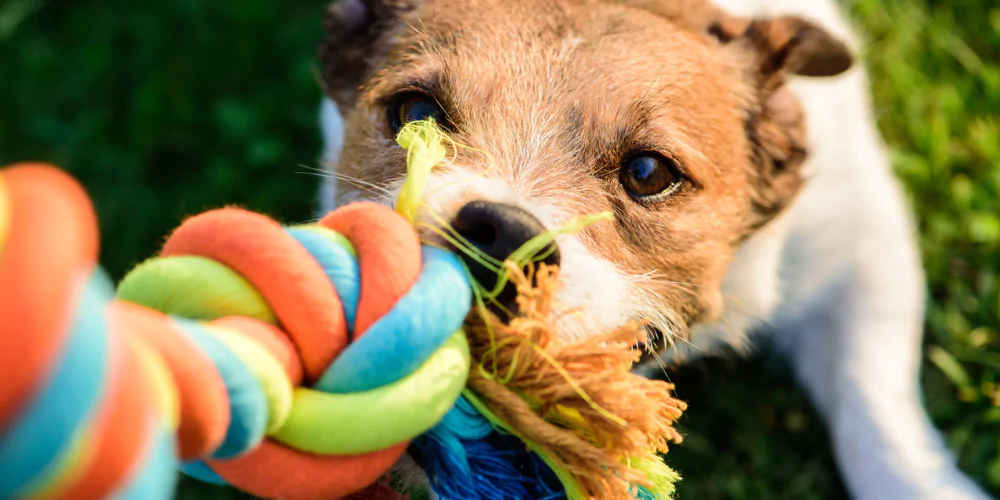
How to stop resource guarding in dogs
It’s the big question asked by many owners – once my dog has started resource guarding, can it be fixed?
First things first, never try and train your dog out of resource guarding behaviour by yourself. Or try to follow a plan created for a different dog, even if they’re showing similar guarding behaviour.
Working with a qualified canine professional gets you a bespoke plan based on the unique needs of your dog’s situation.
To give you an idea of how it all works, let’s take a general look at how a behaviourist may approach resource guarding.
- Arrange a full vet checkup – this is advised by most behaviourists in nearly all cases.
Sometimes a dog constantly grabbing and eating lots of strange things could be a sign of underlying pain and discomfort. - Review your dog’s history – this includes your pup’s handling history and the timeline of the behaviour (what early signs there were and when you started seeing them).
The idea is to unravel as much as possible. Understandably you may only be able to unravel so far if your pup is newly rescued. - Create a training plan – careful planning and management is needed when it comes to training.
Your dog will be taught the ‘drop it, leave it, swap it’ cues but slowly and steadily with items they’re not guarding. Once the behaviourist is confident they’ve got the cues correctly, they’ll start using them during guarding moments.
Each case is unique and your behaviourist may do other things to help your pup. For example, they may put them on short-term medication. Or teach them how to reverse out of a space (so you can get past safely if they’re guarding).
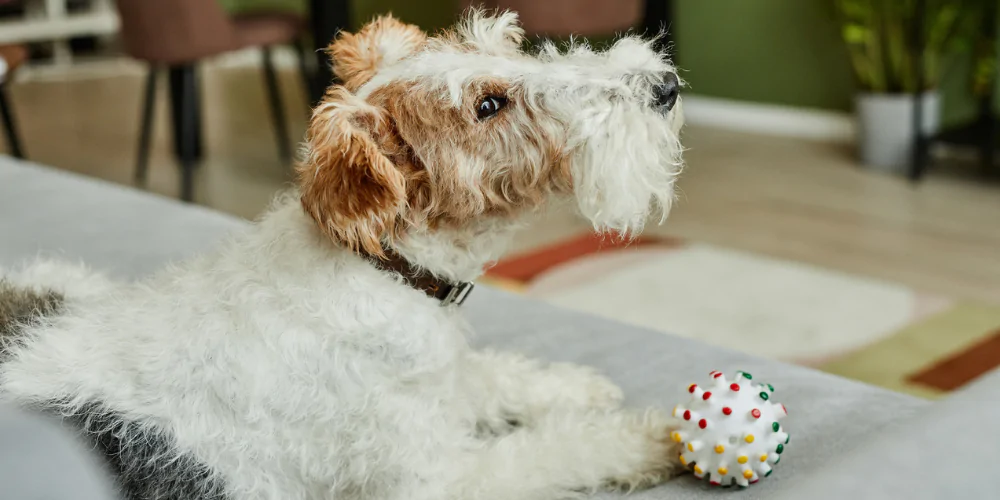
> Other ways to support a resource guarding dog
Along with following the training plan from your canine professional, there’s other things you can do to manage resource guarding:
- Plan ahead – don’t give your dog a chew toy if you have a curious toddler enjoying playtime close by
- Give them time – let your pup have enough time to chew and enjoy their toys
- Create a quiet and safe area – if your dog guards their food, feed them in a room where they won’t be disturbed and feel defensive
> Can I claim behavioural support for resource guarding through pet insurance?
You may be able to claim for behavioural sessions through your pet insurance. Check your policy wording carefully to see what’s covered.
Protect your pup through all their adventures with Petgevity dog insurance.


